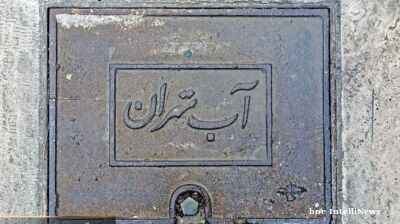Iraq is experiencing a severe heatwave, with temperatures reaching unprecedented levels, local meteorology reports said on July 19.
The Iraqi Meteorological Authority has forecast that this intense heat will persist. Basra is expected to be the hottest region, nearly reaching 50 degrees Celsius as temperatures across the region break records this week.
Basra is anticipated to record the highest temperature at 49 degrees Celsius, making it the hottest area in the country. Dhi Qar and Maysan will follow closely, with both regions expecting temperatures of 48 degrees Celsius.
The capital city, Baghdad, is also predicted to experience extreme heat, with temperatures reaching up to 47 degrees Celsius. Erbil and Dohuk in the north will be relatively cooler but still hot, with temperatures of 43 and 42 degrees Celsius, respectively.
In the southern regions, Muthanna and Nasiriyah will both see temperatures as high as 49 and 48 degrees Celsius. Najaf and Karbala are also forecast to reach 48 degrees Celsius. In the northern and central regions, Kirkuk and Salah ad-Din are expected to experience temperatures of 46 and 47 degrees Celsius, respectively. Nineveh and Sulaymaniyah will see temperatures of 45 and 41 degrees Celsius.
This extreme heatwave is expected to continue throughout the week. The Meteorological Authority has advised residents to take necessary precautions to cope with the high temperatures. Clear skies will prevail, offering no relief from the intense sun.
The Meteorological Authority has issued a health warning of the dangers of extreme heat. Residents are urged to stay hydrated, avoid outdoor activities during peak heat, and be aware of the high UV index, which poses significant health risks.
On July 18, the United States granted Iraq another 120-day sanctions waiver to continue importing electricity from Iran, a State Department spokesperson told Al Monitor reported.
The waiver, renewed on July 11, allows Iraq to purchase Iranian electricity without facing US penalties, though the funds remain in restricted accounts that Iran can only access for humanitarian trade.
"Since 2018, the Department has allowed Iraq to purchase Iranian electricity while it develops domestic capacity," the spokesperson said, noting this continues a practice from previous administrations.
Southern areas in Iraq close to the Persian Gulf have also the added complexity of humidity increasing the effects of the heat for those in the area as well as putting extra strain on the local electricity grid which is bowing under stress.
Dubai has already been afflicted with extreme weather conditions earlier this year when an entire year’s worth of rain fell in a single day, causing widespread chaos and flooding.
The extreme heat conditions are also raising concerns about energy consumption, worker safety and potential impacts on tourism in the emirate known for its summer heat.
Earlier this week power output across the region reached its highest ever MW per hour, as people turned up their air conditioning to offset the heat effects.
Scientists said that while Dubai and Abu Dhabi regularly experience high temperatures during summer months, the intensity of this heatwave aligns with global patterns of increasing extreme weather events linked to climate change.
bneGREEN

Kyrgyzstan says neighbours “upset” by country’s lack of water
“This year we were supposed to overcome shortages, but instead, they have intensified,” deputy head of cabinet tells Uzbekistan and Kazakhstan.

EXPLAINER: What is the EU’s CBAM and how will it affect global trade from 2026?
The European Union’s Carbon Border Adjustment Mechanism (CBAM) will enter its full operational phase on January 1, 2026, marking a major shift in global climate and trade policy.

Iran faces critical water crisis after driest year in five decades
Iran faces critical water crisis after driest year in five decades with 40% nationwide rainfall drop.

Global renewables to double by 2030, but IEA warns momentum must accelerate
Global renewable energy capacity is on course to double by 2030, reaching 4,600 GW—comparable to the current combined total of China, the European Union and Japan—according to the International Energy Agency’s Renewables 2025 report.




